New Scientist covers the latest developments in science and technology that will impact your world. New Scientist employs and commissions the best writers in their fields from all over the world. Our editorial team provide cutting-edge news, award-winning features and reports, written in concise and clear language that puts discoveries and advances in the context of everyday life today and in the future.
Elsewhere on New Scientist
Live long and prosper? • The downsides of anti-ageing medicines won’t outweigh the benefits
New Scientist
Staring into the eye of a hurricane
Analysis Obesity • Should weight-loss drugs be used by children? Major US healthcare organisations have offered contradictory advice about the use of these medications in adolescents with obesity. How much do we know about their effects, asks Grace Wade
Mysterious ancient culture revealed • Rock art in Venezuela offers a glimpse thousands of years back to a culture unknown to science
Moss that survives extreme conditions could live on Mars
Water from 2022 Tonga eruption still in the atmosphere
Solar boom covers farmland that could feed millions
Dangerous mpox strain spreading • New form of the virus has emerged in a mining town in the Democratic Republic of the Congo
Ants amputate each other’s limbs to save them from infection
Why time ticks faster on the moon • NASA is working to define a time zone for the moon as an aid to lunar exploration
Baby-led weaning is as good nutritionally as spoon feeding
AI can predict how monkeys play Pac-Man
Analysis Nuclear fusion • Is the world’s biggest nuclear fusion experiment dead? The giant ITER project has been delayed by 10 more years. Matthew Sparkes looks at whether it is still worth pursuing
A Neanderthal with Down’s syndrome • A fossil bone displaying features of Down’s syndrome came from a Neanderthal child, adding to evidence that these extinct humans cared for members of their community, finds Michael Marshall
$1m prize for AI that can solve puzzles that are simple for humans
Trilobites preserved in incredible detail by volcanic eruption
Odd galaxies break cosmic theories • Strange early galaxies seem to have far too many stars or impossibly huge black holes
Ancient scribes had terrible posture while working
Physicists reveal the paper most likely to give you a paper cut
The last woolly mammoths on Earth didn’t die from inbreeding
Safely targeting the deep brain • A non-invasive ultrasound device can precisely stimulate hard-to-reach brain structures, which could help treat depression, long-term pain and post-traumatic stress disorder, says Michael Le Page
AI learns to identify chess moves that are the most brilliant and entertaining
Winter ‘sauna’ helps frogs fight off fungal disease
Alien anxiety • Sci-fi depictions of extraterrestrial invasions can heighten illogical fears about our efforts to make first contact, says Douglas Vakoch
No planet B • Hello, cool world Demand for air conditioning will only grow as temperatures rise, sending energy consumption soaring. But there are some interesting solutions, finds Graham Lawton
Unreal history
Your letters
Save our seas
Relax with some great science • Want to save our seas? Make exotic cocktails? Ponder life’s meaning? Whatever your plans this July, Simon Ings rounds up the year’s best non-fiction so far
Psychedelic paradox
Don’t forget to pack the sci-fi… • From a quantum-bubble reality show to a murderous valet bot, enjoy this year’s best science fiction so far if you are heading on your travels, says Emily H. Wilson
Immune to ageing • It may soon be possible to vaccinate ourselves...

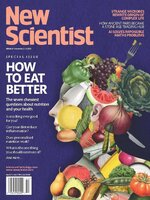 Nov 02 2024
Nov 02 2024
 Oct 26 2024
Oct 26 2024
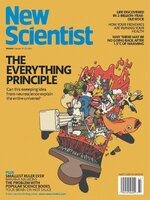 Oct 19 2024
Oct 19 2024
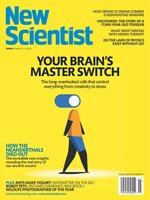 Oct 12 2024
Oct 12 2024
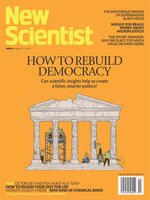 Oct 05 2024
Oct 05 2024
 Sep 28 2024
Sep 28 2024
 Sep 21 2024
Sep 21 2024
 Sep 14 2024
Sep 14 2024
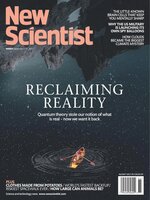 Sep 07 2024
Sep 07 2024
 Aug 31 2024
Aug 31 2024
 Aug 24 2024
Aug 24 2024
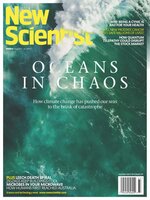 Aug 17 2024
Aug 17 2024
 Aug 10 2024
Aug 10 2024
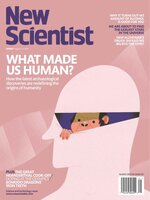 Aug 03 2024
Aug 03 2024
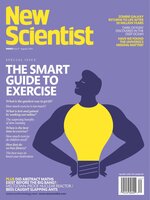 Jul 27 2024
Jul 27 2024
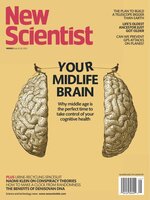 Jul 20 2024
Jul 20 2024
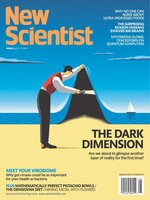 Jul 13 2024
Jul 13 2024
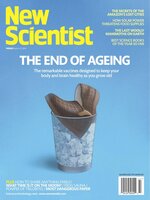 Jul 06 2024
Jul 06 2024
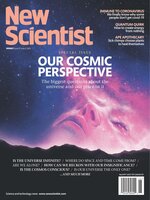 Jun 29 2024
Jun 29 2024
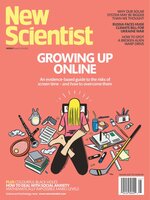 Jun 22 2024
Jun 22 2024
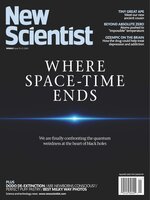 Jun 15 2024
Jun 15 2024
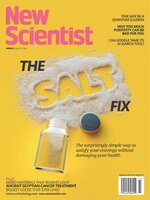 Jun 08 2024
Jun 08 2024
 Jun 01 2024
Jun 01 2024
 May 25 2024
May 25 2024
